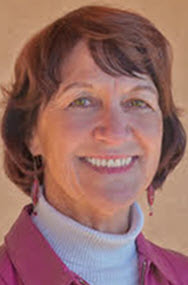 “Whenever we first receive a referral on a student who is struggling at school, we always ask them if there is anything going on at home that we should know about,” says Madalena Miera, the manager for the Comprehensive Community Support Services (CCSS) program for Taos High School and Chrysalis Program. The CCSS staff at Taos Behavioral Health provides wrap around services for students referred by teachers and counselors.
“Whenever we first receive a referral on a student who is struggling at school, we always ask them if there is anything going on at home that we should know about,” says Madalena Miera, the manager for the Comprehensive Community Support Services (CCSS) program for Taos High School and Chrysalis Program. The CCSS staff at Taos Behavioral Health provides wrap around services for students referred by teachers and counselors.
“Sadly, we may hear that a student is sleeping on the floor, that there is no heat in the house, that there is not enough food” states Miera—all situations that result in stress that can be seen at school. The CCSS staff then tries to activate appropriate community support to help the family and the student.
When students are referred to TBH for CCSS services, a therapist completes an intake process with each student. They are then assigned to a CCSS worker who helps create a management plan for needed resources. They are also seen by a clinician at least once a month. CCSS workers need to be sensitive, creative and supportive to a student’s unique needs. Sometimes an emergency food basket from CAV is needed, sometimes information about paying past due utility bills or negotiating mortgage payments is stressing the family. Miera states that the community needs more resources from volunteers that can be helpful in their work. “Often time we need food and water for over the weekend.” Some families never access the food pantries because they have no transportation and CCSS can help with that. But other needed items include clothing and feminine care products.
Some of the students referred to the CCSS program have no family transportation. A student sometimes rises at 5 a.m.—catches the Blue Bus to a location where a school bus can then take them to school. They may arrive an hour before most students. A common challenge shown by these students is a lack of self-esteem—which makes it difficult for them to ask for the help they need. Miera comments that CCSS workers help them with assignments, but also teach them how to request help from the teacher. CCSS workers meet with students individually but also may go with them to conference with their teacher. In these ways they teach them how to advocate for themselves.
Miera reports that TBH has increased their hiring and currently has 5 clinicians and 5 CCSS workers who will be available to Taos High School and the Chrysalis Program students. “Teachers are so happy that we are there to give wrap-around services” reports Miera. “Every day we receive more referrals. We really appreciate their support and cooperation to make our work more effective.”
With the increase in the number of students receiving services (currently approximately 20), the stigmatism of accepting help has been reduced. “These are real needs”—states Miera. “I have a handful of students who are homeless. They couch surf and land at the homes of their friends.”
Miera is deeply experienced with vulnerable youth. A graduate of Taos High School, Miera has an undergraduate degree in Psychology and a Master’s in Public Health. She worked in a transitional program at UNM Children’s Psychiatric Center, as the CAV Children’s Saferoom Director, as an investigator for Child Abuse at CYFD, the Community Outreach Coordinator for DreamTree, and the Co-Director of Los Angelitos program for special needs children. She is also the owner of Mini Manes and Tails, a therapeutic equine program that was featured in the TBH Taos News column on October 31st. In all of these activities, her passion and skills shine!
Taos Behavioral Health has the largest staff of licensed and credentialed behavioral health professionals in northern New Mexico. Reach us at www.taosbehaviroalhealth.org , 575-758-4207 or 105 Bertha St. in Taos.
Mary McPhail Gray is the board chair of TBH and can be reached at 575-779-3126 or mcphailconsulting@gmail.com.

